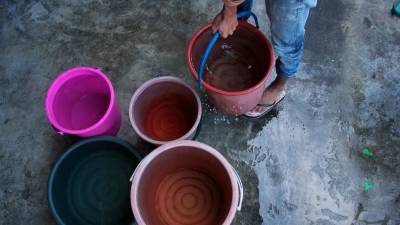GEORGE TOWN: Penang Chief Minister Chow Kon Yeow said the state is aiming to cut daily water use by 20 million litres this year, adding that the effort must begin in schools.
After launching the Negalitres for Schools Penang 2.0 programme on Wednesday, he said water management is no longer just about utility supply but also a matter of survival, economic resilience and the well-being of future generations.
“Behavioural change, awareness and a culture of water conservation must start in schools. This initiative is therefore timely, as it instils these habits in the next generation while promoting STEM learning and green innovation.“
He also said Penang continues to face water challenges, with more than 80% of its supply drawn from Sungai Muda, adding that despite being the country’s highest domestic water user, recent efforts by Perbadanan Bekalan Air Pulau Pinang have shown progress.
“Statistics show that domestic water consumption has been reduced from 284 litres per capita per day (LCD) in 2023 to 261 LCD in 2024, the lowest level in 24 years.
“The next target is to reach 250 LCD by this year, which is expected to save approximately 19.8 million litres of water per day.“
He added that the programme complements the Penang2030 vision of building a green, climate-friendly and resilient society, while aligning with the 13th Malaysia Plan, that prioritises sustainability and climate change adaptation.
“What we do today not only addresses current needs but also contributes to the country’s development planning for the next five years,“ he said, calling the campaign a model for collaboration between government, industry, schools and NGOs.
Negalitres 2.0, spearheaded by Water Watch Penang (WWP), will involve 170 schools over three years.
WWP president Prof Emeritus Datuk Dr Chan Ngai Weng said the project targets wastage in schools, especially from prolonged tap use, while building lifelong conservation habits.
“With water often wasted through prolonged tap usage in schools, the project aims to shift behaviours and practices towards more sustainable use.“
Schools would be equipped with self-closing taps and water-saving devices at toilets, canteens and ablution areas, alongside workshops and awareness programmes.
All equipment, training and maintenance would be provided free, with monitoring extended over 10 years.
Chan said “Negalitres” refers to the volume of water saved rather than consumed.
The first phase, launched in 2022, saw 100 schools save an estimated 100 million litres annually through more than 4,600 water-saving devices.
